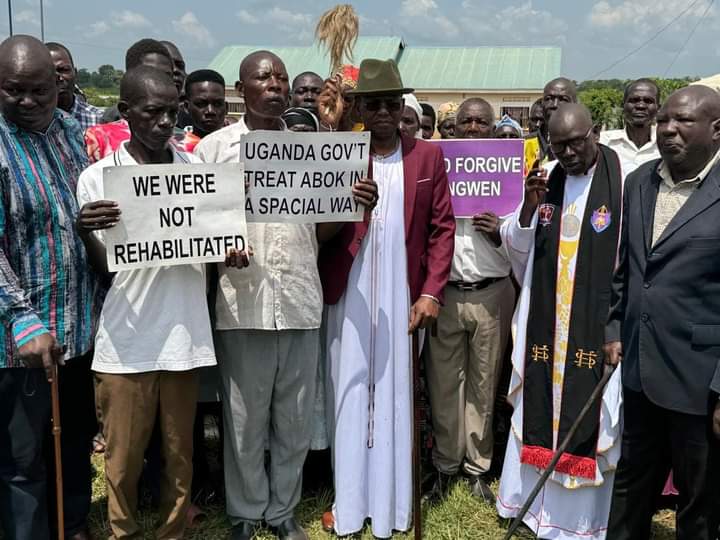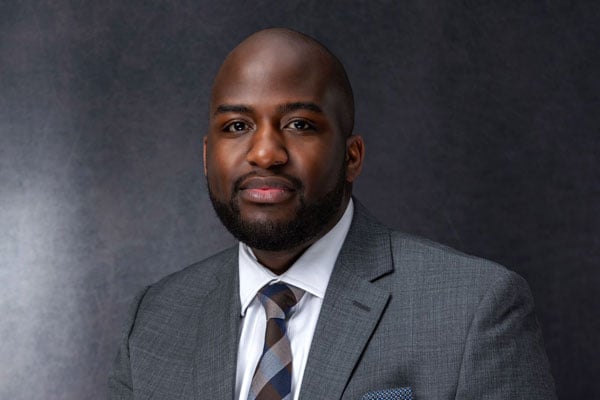LRA women war victims ask govt for settlement

Ms Ritah Nanyonga, the Project Coordinator for ActionAid International Uganda speaks during an engagement meeting with other stakeholders in Gulu on August 17, 2024. PHOTO| SYLIVIA KATUSHABE
What you need to know:
- These women, abducted by the LRA rebels between 2004 and 2006, shared their struggles of reintegration, revealing that many have been unable to settle with their children, who were fathered by rebels. Rejected by their families and communities, they remain homeless, as they do not own land.
Former female abductees of the Lord’s Resistance Army (LRA), now under the War Victims and Children Networking Initiative, have urged the government to resettle them, two decades after returning from captivity.
These women, abducted by the LRA rebels between 2004 and 2006, shared their struggles of reintegration, revealing that many have been unable to settle with their children, who were fathered by rebels. Rejected by their families and communities, they remain homeless, as they do not own land.
The women hail from Gulu, Amuru, Nwoya, Pader, Kitgum, Lamwo, and Omoro districts in Northern Uganda.
Ms Margret Alum, a former abductee from Gulu, was taken by the LRA at the age of 14. She returned with three children but has since struggled to secure a home for them. Alum appealed to the government for support, citing the stigma and rejection they continue to face.
“Our children are seen as burdens in the community because we don’t know the origin of their fathers. We ask the government to provide us with land so we can settle. We have been crying for many years,” Ms Alum said.
She further highlighted the dire consequences of this rejection, noting, “Many women have committed suicide due to the stigma and rejection that comes with being an abductee. Even the children we returned with are taking their own lives.”
The women spoke during an engagement with ActionAid International Uganda on Saturday.
Ms Florence Akullo, another war victim, emphasised the challenge of landlessness, which has severely impacted their economic stability. Akullo also pointed out that many of them still suffer from injuries sustained during captivity and reproductive health issues resulting from being raped at a young age, but they cannot afford medical treatment.
“We cannot afford school fees for our children, and many of us still have bullets in our bodies because we lack the funds for treatment,” Ms Akullo said.
ActionAid International Uganda, with support from the Judith Neilson Foundation, has launched a two-year Africa Women Voices for Peace Project. This initiative aims to address the immediate protection, economic, and healthcare needs of these women.
“These needs are crucial for their sustainable participation in peace, security, and justice processes at both national and regional levels. They were identified through consultations with women-led community-based organisations involved in the regional convening,” Ms Ritah Nanyonga, the project coordinator, said.
Ms Nanyonga explained that economic disparities exacerbate women’s vulnerability in conflict situations, stating, “Limited access to resources, land, and economic opportunities, along with the disproportionate burden of unpaid work, restricts women’s ability to engage in peacebuilding activities and increases their dependence on male family members for survival. Economic empowerment is essential for women to actively participate in peace processes and contribute meaningfully to security initiatives.”
The project will be implemented in Gulu, Amuru, and Kitgum districts, where survivors, particularly those who were raped and their children, continue to face lasting impacts and stigma.
Ms Stella Lanam, the executive director of the War Victims and Children Networking Initiative, noted that the project will benefit at least 500,000 women and children.
“The challenges these women face include stigma, rejection, school fees, and hospital bills. Many are just renting in cities and other centres because they lack livelihood support,” Ms Lanam said.
Ms Lanam also mentioned that due to the early age at which many of these women gave birth, they continue to suffer from reproductive health issues but struggle to access treatment.
Ms Upenyu Mawande, the head of programmes-Africa at the Judith Neilson Foundation, reiterated the foundation’s commitment to empowering these women and enhancing their well-being and resilience.
The LRA, a Ugandan rebel group led by Joseph Kony, waged war on the NRM government for nearly 18 years, abducting and killing thousands of civilians in northern Uganda.




